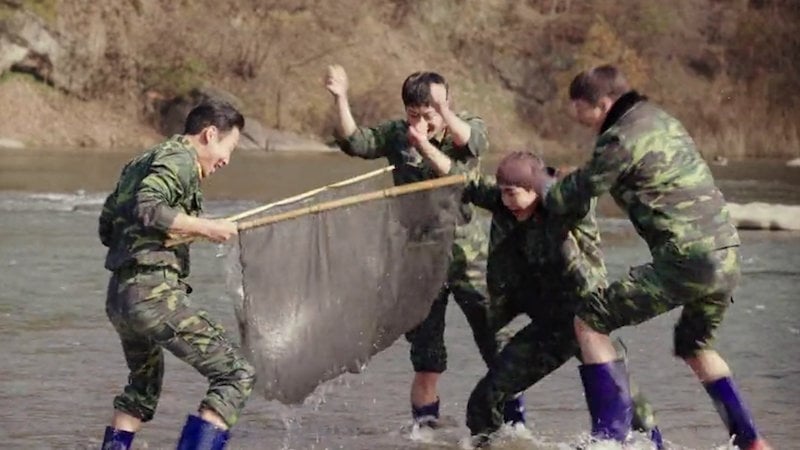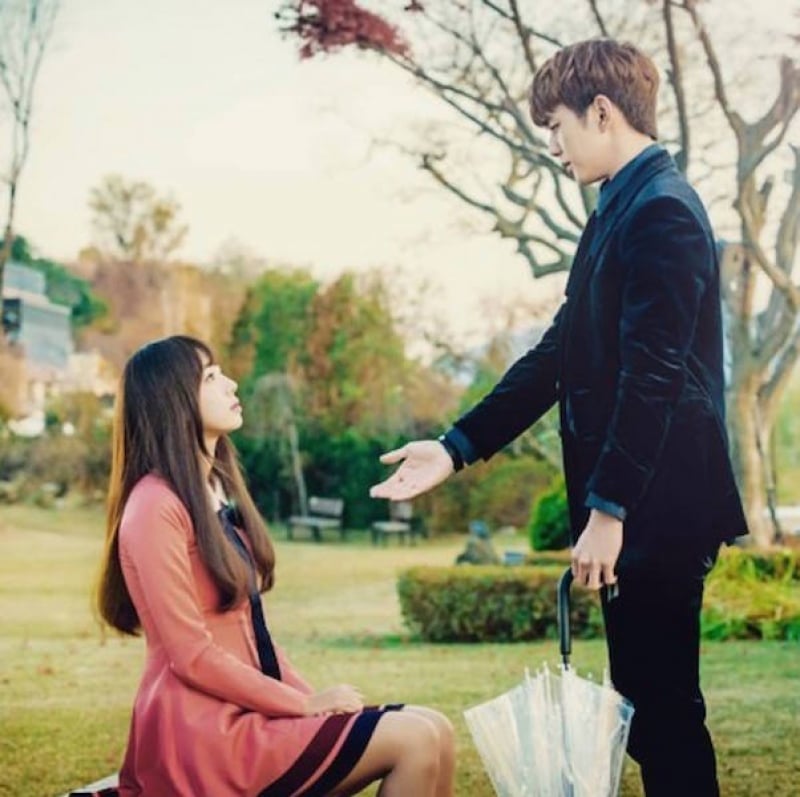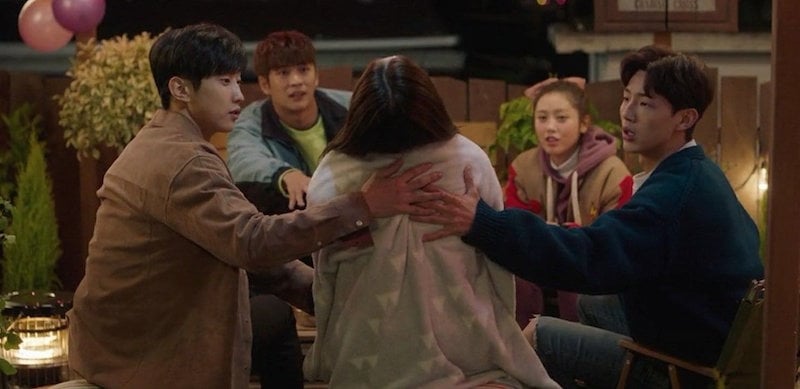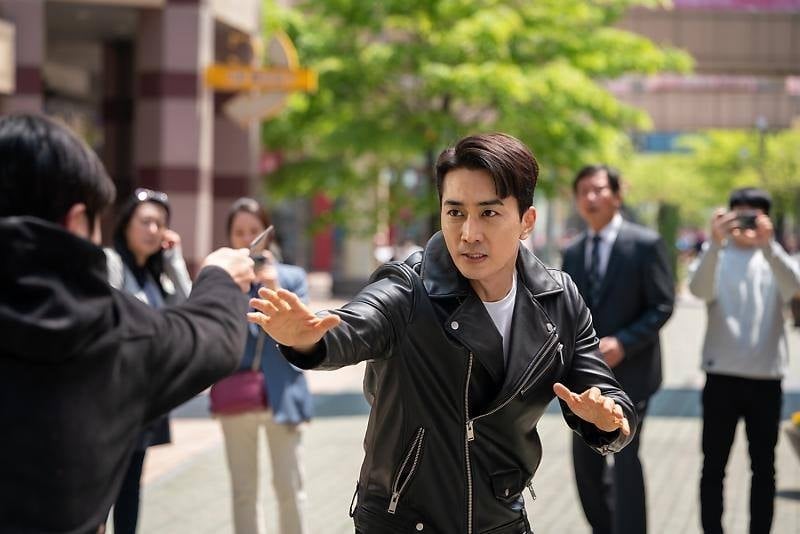Annyeong, K-drama lovers! If you’ve been a TripZilla reader for a while, then you’d know about the first article we published about Korean words and phrases that every K-drama fan should know. If you haven’t read that yet, no worries, you can always start today!
Since the first article, we saw just how much our readers were passionate about K-drama, and how fun it was for you to become familiar with the basic Korean words and phrases we usually hear when watching our beloved oppas and unnies on screen. After happily finding out that we had kindred spirits in you, we thought that it was about time to come together once again for part two of Korean words and phrases K-drama fans should know!
Give us a holler if you recognise any of these Korean phrases, words, and expressions that you usually hear from your favourite K-dramas!
1. Daebak – “Jackpot!”

Although this Korean word translates to “Jackpot!”, it isn’t limited to that particular meaning, which is why you’ll often hear the word used in many situations in K-dramas. “Daebak” is said when expressing shock, awe, and success. Hence, when your friend gives you some surprising news, you can use this Korean word in a simple reply. When your classmates score high on an exam or when you eat delicious food, let “daebak” express your happiness!
2. Aniyo – “No”
You couldn’t have missed this even on your first time watching a K-drama. The formal and standard Korean word for “no” is “aniyo”. The informal version would be ani. Super easy to remember, isn’t it?
3. Gaja – “Let’s go”

Image credit: Im not a Robot – Korean Drama Facebook Page
“Gaja” is the informal way of saying “Let’s go”, and you’ll hear this in K-dramas more often than you’ll hear the formal version, which is “gabshida”. When two friends in a K-drama are going out or even on the run from authorities, expect to hear a resounding “Gaja!”.
4. Gwenchana – “It’s okay”/ “That’s fine”

Image credit: My First First Love Facebook Page
Still getting the hang of these Korean words and phrases? “Gwenchana!”
On that note, when talking to someone older, you’ll notice Koreans add “yo” at the end of certain words to signify respect. So when saying “It’s okay” to anyone older than you in Korea, be sure to say “Gwenchanayo” instead!
Gwenchana/gwenchanayo – “Are you okay?”
Yup! You can simply change your intonation with this Korean phrase when you want to ask “Are you okay?”. When the intensity seems to escalate in K-dramas, hearing the Korean phrase “gwenchana” exchanged between friends or lovers is typical. Another version of this is “genchanayo”, without the “w”. Both can be used in a similar way.
At the same time, you can say “gwenchanayo” to answer “I’m okay”. Again, just change your tone into that of a statement!
5. Eottoke – “What should I do?”
If you’re a newbie in K-drama, you should know that “Eottoke” has different interpretations, so don’t get confused. You can use it for its direct translation, which is “What should I do?”.
But Koreans also say this when expressing the same feeling as when you say “Oh no”; or in a more positive tone as, “No way! What do I do with myself?” like when you just received some awesome news. Hence, “Eottoke” can be said in the middle of both good and bad circumstances.
6. Jjajeungna – “I’m annoyed”/ “Ugh!”

“Jjajeungna” literally translates to “I’m annoyed”. But think of it more as a Korean expression for “Ugh!”. For example, if you’ve finished watching Itaewon Class, Jang Geon-won and Jang Dae-hee would have probably made you say “Jjajeungna” countless times.
And don’t even get us started on this facial expression that Captain Ri made on Crash Landing On You; though he didn’t say it, his face practically screamed “Jjajeungna!”.
7. Yeogi – “Here”

This Korean word isn’t just heard often in K-dramas but also in K-pop songs! Koreans say “yeogi” when pointing out something closer to the speaker. You can also use it when asking “Here?”.
One clear example would be that scene in Crash Landing On You where Captain Ri points out his non-existent nose scar to Yoon Se-ri just to have her move closer to him. When Se-ri says “Yeogi?” and sees no proof of the scar, our sly captain uses it as an opportunity to kiss her. Smooth move, Captain Ri!
8. Assa – “Oh yeah”
Here’s a simple Korean expression used very casually in K-dramas. Aside from “Oh yeah”, “assa” is one of the Korean words which is normally used to express enthusiasm for something.
9. Jamkkanman – “Wait a moment”/ “Excuse me”

Travelling with your Korean friends in Seoul? Just tell them “jamkkanman” if you need them to wait up. On the other hand, Koreans also use this to express “Excuse me”, either to get your attention or for you to move out of the way. So in K-dramas, this Korean phrase isn’t only used between friends, but it’s also said when someone wants to have the last word!
10. Gajima – “Don’t go”
We’ve heard this so many times in K-drama love stories and rom-coms! “Gajima” is often uttered when the other half of the couple is forced to let his/her better half go due to uncontrollable external factors. How many K-dramas can you name which had a similar scenario?
11. Joahae – “I like you”
It always takes our leading oppa or unnie some guts and a couple of episodes into the series before they can say “Joahae”. And we’re always at the edge of our seats waiting for what’s going to come next!
That said, it’s important to remember that “joahae” is the informal way of saying “I like you” and should only be used when talking to your peers or when speaking to close friends. When talking to older people or those not close to you, remember to add “yo”. So, when K-drama characters admit they like someone older than them, you might hear “joahaeyo” instead!
12. Mianhae – “I’m sorry”
Outside of our love of K-dramas, it’s still very useful to know about the Korean phrases for “I’m sorry” in case we encounter any problems in our travels in South Korea. “Mianhae” is the informal way to apologise. If you need to be more respectful, say “jeosonghamnida” or “mianhamnida”.
13. Kol – “Deal”

Image credit: The King: The Eternal Monarch K-drama Facebook Page
This Korean word that we’ve discovered through K-dramas is actually a slang term which came from the English word “call”. Koreans say “kol” to express their agreement with something or simply to say “I’m game!”. When someone invites you to eat drool-inducing Korean chicken, for example, feel free to say “Kol!”.
14. Neo michyeosseo – “Are you crazy?”

Image credit: Dinner Mate 저녁같이 드실래요 Facebook Page
Saying “michyeosseo” is a very informal way of speaking and it’s not the most polite thing to tell anybody. But this Korean phrase is used loosely in K-dramas to express utter disbelief, distrust, and a little bit of concern and fear. Needless to say, you’ll hear it several times when watching K-drama rom-coms!
15. Jugeullae – “Do you want to die?”
You’ll normally hear thugs and gangsters in K-dramas say “jugeullae”, obviously as a threat to the protagonists. Otherwise, it’s used as a lighthearted joke between friends. If your friend’s thinking of doing something crazy, tell them loud and clear, “Jugeullae?!”.
Also read: 10 Most Famous UNESCO World Heritage Sites You Need to Visit in South Korea
If you want to take your Korean fluency to the next level or are concerned about the pronunciations of these Korean words and phrases, check out these Korean language apps and online courses that can enhance your skills. K-dramas aren’t the only mediums we can use to learn Korea’s beautiful language, after all.
And with that, we end part two of our Korean language lessons from K-dramas! Did you learn something new, or do these Korean words and phrases sit too easy for you? Let us know in the comments!





